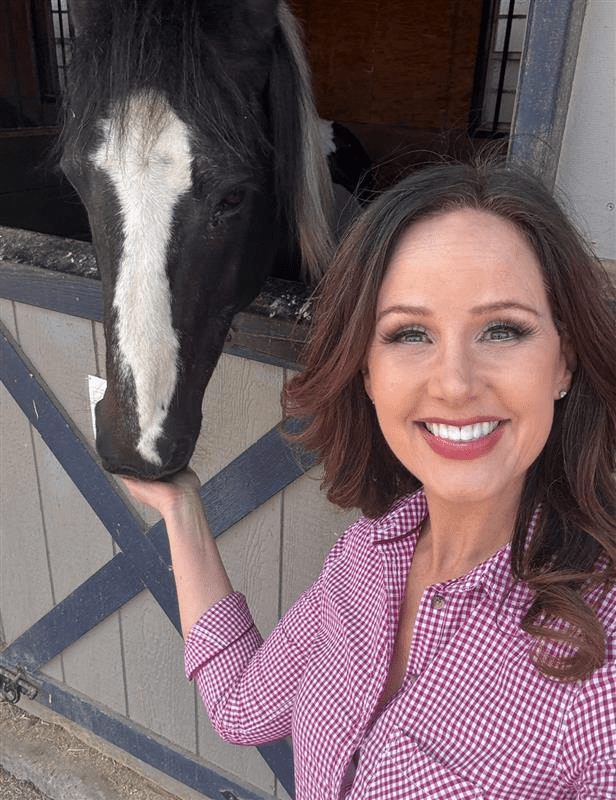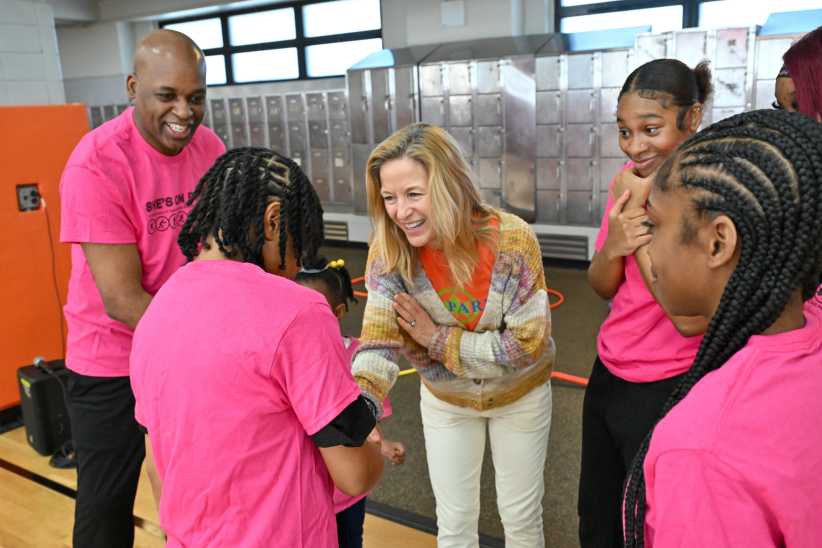To call Iman an icon is an understatement. In
an industry now teeming with supermodels, Iman was and still is an
original, a game-changer and an innovator. A native of Somalia, she left
her country at 18 to pursue an opportunity she didn’t quite comprehend,
never expecting her arrival in the United States to leave the fashion
industry—and society’s perception of beauty—forever altered.
Now, after gracing
every prestigious magazine’s cover, posing for photographers like Annie
Leibovitz and Helmut Newton and serving as a muse to some of the
industry’s most respected designers (such as Yves Saint-Laurent, Donna
Karan and Calvin Klein), Iman’s legacy in the modeling world remains
indelible long after her final runway strut in 1989, when she retired
from the industry to focus on other ventures, such as her wildly popular
makeup brand, books and HSN clothing lines. As Iman evolves from model
to actor to business mogul to newly-appointed reality star (she
currently hosts Bravo’s “The Fashion Show” alongside designer and
longtime friend Isaac Mizrahi), the 55-yearold stunner remains fearless
and self-assured.
The
two constants in her life, however, are the roles she takes most
seriously: those of devoted and protective mom to her two
daughters—Zulekha Haywood, 31 and Alexandria Zahra Jones, 10—and wife to
her husband of 20 years, musician (and fellow icon) David Bowie. Still
radiant at 55, Iman has a grounded approach to life, work, family and
love.
You and your siblings were born and raised in Somalia. What was your childhood like?
Kind of normal. I have
two brothers and a sister. My father was a teacher when I was very young
and my mom was studying to become a nurse. I would say we were a poor
family—but not so poor that I really knew what poverty was. We never had
a lack of food and we always had shelter over our heads. My parents say
now that they went to bed hungry—they just did their best to protect
their children.
Did you travel as family?
Yes, my father was very
politically active and became an ambassador. I remember going to school
in the Sudan as a child. Later, when my father was moved to Saudi
Arabia, education for girls was kind of non-existent, so I lived at a
boarding school in Egypt and finished my high school there.
Is that where you were “discovered”?
No, in 1969 there was a
revolution—a military coup—in Somalia and all the embassies were closed.
My mom became fearful for my father’s life and decided we were going to
flee the country. She put us in a van in the middle of the night, and
we crossed by foot to Kenya and became refugees. My parents moved on to
Tanzania and they settled there, but my siblings and I stayed in Kenya
to go to school. I was living in a camp and working translating tourism
brochures, since I spoke English, French and Italian, and going at the
same time to The University of Nairobi.
One day on my way to
university, a photographer by the name of Peter Beard stopped me on the
street and asked me if I had ever been photographed. I thought he was
trying to pick me up. I kept walking and paid him no attention. He kept
talking to me about the business of modeling. I’d never heard of it; I’d
never seen fashion magazines, I’d never worn makeup or heels. And then
he said the magical words—he said, “I’ll pay you if you pose for me.”
That was my first contract.
Did you realize that was your moment?
No, he took the
pictures and went back to America and I thought that was the end of
that. Three months later I got a call from a woman named Wilhelmina, the
owner of Wilhelmina Models, who she said she’d like me to come to
America to model. Mind you, I wasn’t even 18 years old. In my country,
and especially in Kenya, you aren’t allowed to leave the country without
the permission of your parents before 18. I had no passport, so I had
to forge everything. I had to lie about my age because my parents would
have never let me go.
What an adventurous
spirit you have!
I think it is, first of all, that Somalis are
inherently nomads. It wasn’t something that was foreign to me, to move.
It wasn’t foreign to me not to be with my parents, because I went to
boarding schools. Also, it was the spirit of the refugee, so to speak. I
had nothing to lose.
You
became a beauty icon shortly after you started working. Do you think
your arrival on the modeling scene affected society’s notions of what is
beautiful?
Oh, absolutely. When I
came [to the United States], I was aware of the politics of beauty. I
could see it around me, how people treated a black model versus a white
model. I’ll give you an example from my first job in America, for American Vogue. I
had never worn makeup in my life; I had no concept. There was a makeup
artist and there was another model on the job, a Caucasian model. The
makeup artist asked me, “Did you bring your own foundation?” I had no
idea what he was talking about. What was foundation? Why ask me and not
her? I could see there was something at odds there.
I’d heard the term “the girl next door” so many times that I kept asking, “What does it mean?” Of course, it means
blonde and blue-eyed. No one ever said that me and the girls like me
were like “the girl next door.” We were “exotic” and “sexy,” but not
beautiful. It was a revelation and a jolt when Peter Beard said I was
the most beautiful woman he had ever seen.
How did you go from being a style icon to a business mogul?
I stopped modeling in
1989 because I wanted to start my second act in life. I had done
everything I could do in my career, and it was time to move on before it
moved away from me. I was going to start being taken seriously as an
executive in business, I needed to divorce myself from this career. So I
decided literally overnight that I was going to stop modeling, and no
one took me seriously. But I have not stepped a foot at a fashion show
since 1989. I wanted to leave at the height of my career, and that’s when I left.
Do you think it was the voice of that makeup artist that encouraged you to start your own cosmetics line, IMAN Cosmetics?
He planted the seed in
my head, but it really came to fruition after I left the modeling
industry. I had created my own foundation as a model, and I saw a need
for it in the real world. I started my cosmetics company in 1994, and
after that I was approached by the Home Shopping Network. I wanted to
create something that I would use as a mom, as a CEO and as a wife.
What drew you to “The Fashion Show”?
Bravo had approached me
with other projects, most of which didn’t seem authentic to me. When
this project came about, the plus for me was Isaac [Mizrahi], because I
have known him for 20 years. He’s a friend and a designer who I admire.
Bravo [then] reformatted to show to have the element of creating fashion
shows. Designers are not islands, they collaborate, and this show
demonstrates the creative part of it, the agony of it, and the passion.
Designers live and breathe fashion, and that’s what drew me in.
How do you like live action versus still photography?
I’ve
never worked this hard in my entire life! And hi-def is no friend to a
woman who’s 55! But we’re very proud of the show and the final product.
Tell me about your children. How are they different? How are they alike?
There’s a big difference
in age. [Zulekha] is 31 and [Alexandria] is 10. They’re alike; they are
both soft, kind and courteous, but at the same time fierce. They are
very independent.
What’s one piece of
parenting wisdom you know now that you wish you had known the first time
around?
That quality time should not be underestimated. When I had my
first daughter, I was very young, in my early twenties. I was at the
height of my career and I was traveling a lot. So I regret not being
around as much as I would have liked. Quality time is really important.
I’ve applied that my second time around—we all work around her schedule!
How do you keep your children grounded?
I have always taught my
daughters that they are not an extension of me, they are their own
people. Especially Lexi, because she has a dad and mom who are known. I
have protected and sheltered my kids from paparazzi; I don’t take them
to any public events. When I’m with my kids, I’m with my kids. I’m not
“Iman,” I’m Mom.
You and your
husband, David Bowie, seem to be one of the most solid couples in the
celebrity world. What makes your marriage work?
It’s separating public
from private. I’ve never had anybody photograph my apartment. We rarely
pose for magazines together—in the 20 years we’ve been together, maybe
[we’ve done so] once or twice. We don’t push the Mr. and Mrs. thing.
He’s David to me, he’s not Bowie, and that’s what makes everything
normal.
I
read once that you said you married your husband because “he’s just
plain silly.”
Oh, yes, he has a great sense of humor and he always makes
me laugh. And he’s curious and connected to everything—he’s a painter,
he’s a sculptor, he’s a writer.
You’re
known for your involvement with numerous charities, particularly those
that aid women and children. What inspires you to become involved in
these projects?
I have always believed
that to whom much is given, much is required of. I have lived a life of
have and have not; at one time my father was an ambassador and I went to
school chauffeur-driven, and [later] I ended up a refugee. I’ll never
forget that the people who helped me were the non-government
organizations in Kenya. Those were the people who got me to my school,
got me money from the government, helped me get situated as a refugee
and as a kid. I’ve never forgotten that, and that’s what moved me to
want to help children and women.
What do you love about New York City?
This is a city that you
can literally make your own. At any given time there’s something
happening. There are the galleries, the museums, the parks. Then there
are the mixtures of people. I’ve lived here for 30 years; I’ve never
lived anywhere else since I left Kenya. I’ve traveled, but I’ve always
come back to New York. It’s my favorite city.
Iman Raises Hope For Congo
A
longtime supporter of numerous international causes that support women
and children in crisis, Iman is particularly passionate about RAISE Hope
for Congo, an organization that is working to draw attention to—and
stop—the catastrophic effects of the country’s ongoing civil war, which
include a multi-million dollar trade in conflict minerals (many of which
are used in our electronics), hunger, rape and sexual violence. “This
constant civil war has been going on forever,” Iman says, “and the women
and girls are the ones who truly suffer.” The statistics are
staggering; the conflict has caused over five million deaths, and
hundreds of thousands of women have been raped in the past decade.
The
organization, which was founded in 2007 by Africa experts Gayle Smith
and John Prendergast, seeks to build a long-term and powerful
constituency of activists who work for the protection and empowerment of
Congolese women and girls.
There
are numerous ways to support the cause, including purchasing
conflict-free electronics, urging your school or workplace to do the
same, and helping spread the word about the situation in the Congo. For
more information, visit raisehopeforcongo.org.
—Katie Garton















